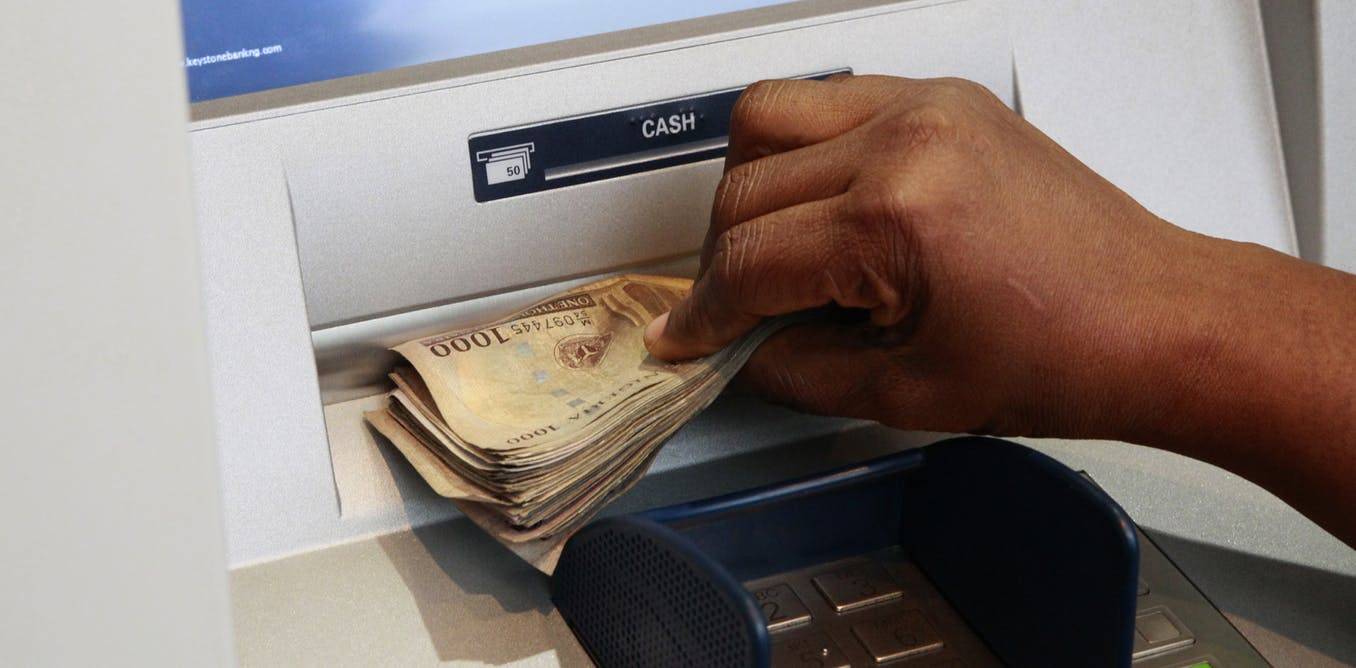Nigerian Banks Are Disobeying CBN’s New Directive On Transfer Fees & ATM Charges & Getting Away With It

For the millions of Nigerians who are customers of commercial banks and who have grown to be dependent on electronic banking services, it came as much-needed respite when word got out that that the fees typically charged by banks on inter-bank transfers and ATM withdrawals had been slashed significantly.
According to the directive from the country’s apex bank, that’s the Central Bank of Nigeria (CBN), effective from January 1, 2020, banks will no longer cream off NGN 52.50 from their customers’ accounts every time they use electronic channels to transfer funds of any amount.
Also, the banks were no longer going to make their customers lose NGN 65.00 every time they withdraw cash from an ATM that belongs to other banks but theirs after making three of such ATM withdrawals in a month.
In the document titled: ‘Guide to Charges by Banks and Other Financial Institutions’, the CBN also touched upon several other areas including card maintenance fees, PoS transaction fees, and reactivation/closure of bank accounts. But perhaps no other directive resonated with customers as much as those related to e-transfers and ATM withdrawals.
January 2020 has since arrived and it looks like some Nigerian banks have complied with the CBN’s new directive. Except that technically, the banks haven’t really complied with exactly what is laid out in the CBN’s new directive given that they (the banks) all appear to have ‘modified’ the directive to suit their interests.
As spelled out in the CBN directive, starting January 2020, bank customers will only pay NGN 10.00 for electronic transfers below NGN 5 K, and NGN 25.00 for electronic transfers between NGN 5 K and NGN 50 K. Additionally, only electronic transfers above NGN 50 K will attract NGN 50.00 charge.
It’s all pretty clear. But guess what the banks have done; it seems they have all gone out of their way to include an extra 50 kobo on such transactions. That is, the banks have taken the liberty to charge NGN 10.50 on every transaction that should cost NGN 10.00.
Also, transactions that should attract charges of NGN 25.00 and NGN 50.00 now go for NGN 25.50 and NGN 50.50 respectively. It appears the banks have conveniently slipped in an extra small amount as part of the charges with the mindset that it doesn’t change much. Except that it does.
In Nigeria, 100 kobo is equivalent to NGN 1.00 which, in turn, is equivalent to about USD 0.0028. Yes, 50 kobo is a very, very small amount when looked at in isolation. But when one takes into account the sheer amount of e-transfers that happen in Nigeria on a daily, the cumulative sum might suggest that banks are making a killing.
Between January and September 2019, CBN’s e-payment statistics show that interbank e-payments in Nigeria eclipsed 800 million in transaction volume, valued at over NGN 75 Bn.
That’s an average daily transaction volume of 3 million and when that is multiplied by 50 kobo, we get NGN 1.5 Mn. When corrected for the newly adjusted fees, NGN 1 Mn is about the sum banks are gobbling up daily just by adding 50 kobo to transfer fees. In a month, that’s NGN 30 Mn. And this needs some looking into.
In addition, it is understood that some banks have not complied with the CBN’s reduced charges on ATM withdrawals. As reported by the News Agency of Nigeria (NAN), some bank customers are lamenting that their banks have now devised a means of deducting ATM charges without sending the alert to their customers.
One of the customers of a popular bank, Tony Iruu disclosed to NAN that the bank had refused to adhere to the CBN guidelines.
“When I heard about the new CBN guidelines, I was impressed because my bank charges me for virtually everything I do, but I have noticed that most times, banks do not adhere to some guidelines, except the ones that favour them,’’ NAN quoted him as saying.
Another customer complained that “her bank did not send a debit alert for the ATM charge, it had, however, reflected in her account.”
When the CBN issued the directive late last year, it also dropped a warning stating that unapproved or arbitrary charges by banks and other financial institutions would attract a penalty of NGN 2 Mn per infraction or as may be determined by the CBN from time to time for financial institutions that breach any provision of the guide.
For all we know, the extra ‘small’ 50 kobo is unapproved by the CBN and appropriate actions ought to be taken.
The Guide also emphasized that failure by any bank to comply with CBN’s directive in respect of any infraction shall attract a further penalty of NGN 2 Mn daily until the directive is complied with or as may be determined by the CBN from time to time.
With that in mind, it would seem that now’s the time for the CBN to look into and penalise banks that have fallen afoul of its very clear directive.
Featured Image Courtesy: TheConversation